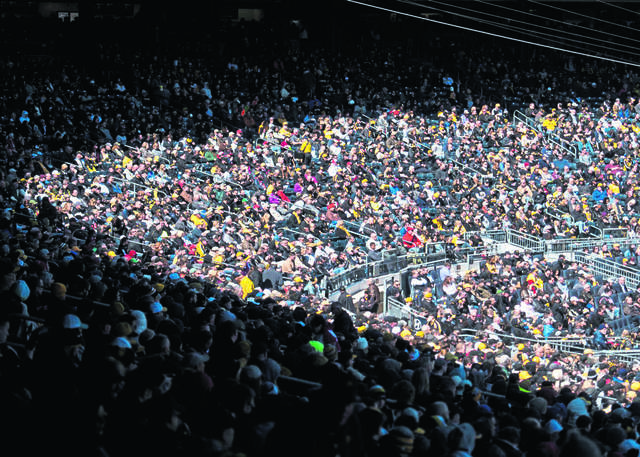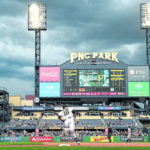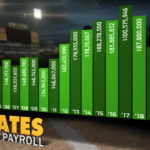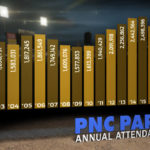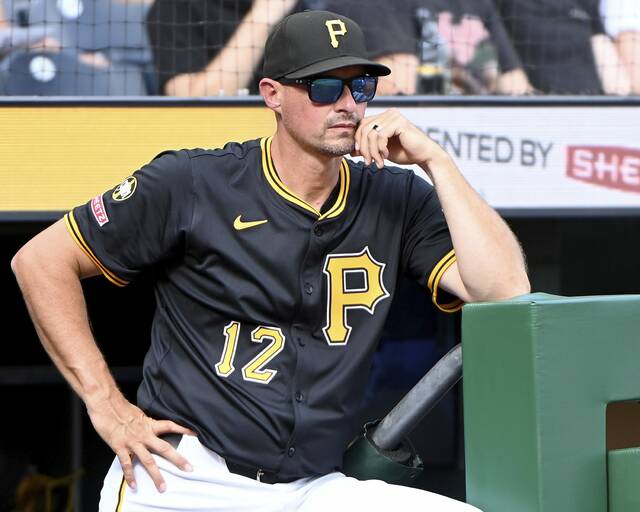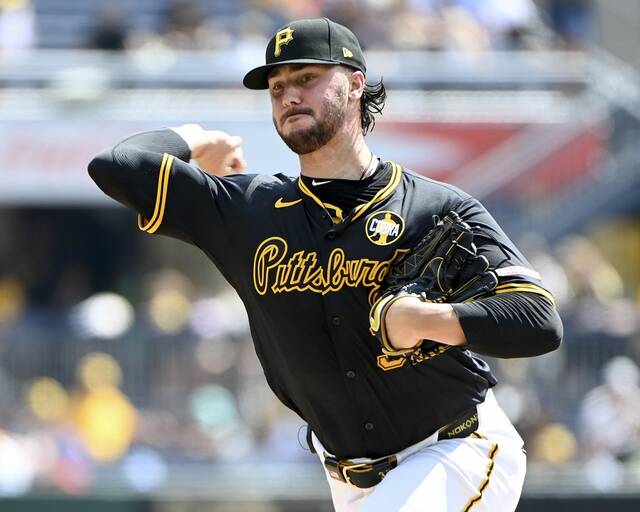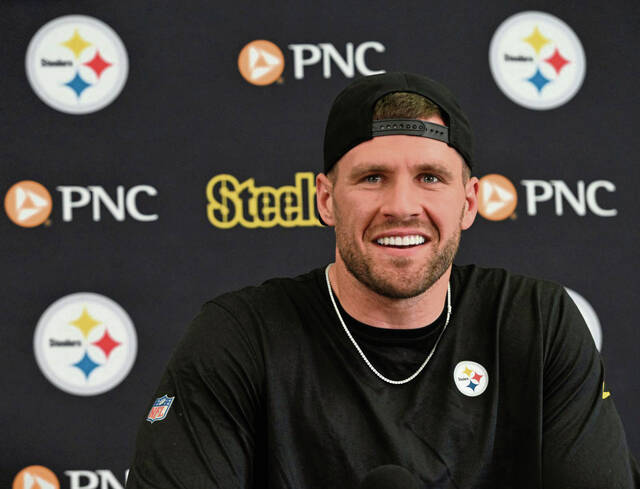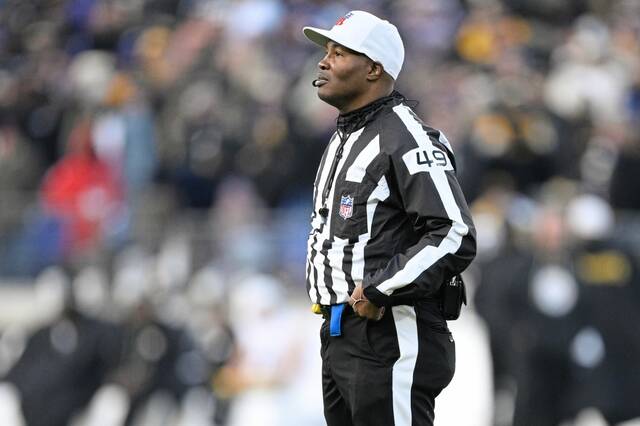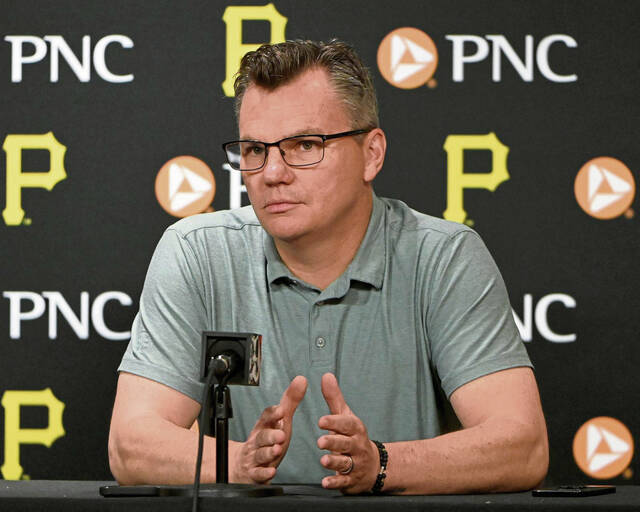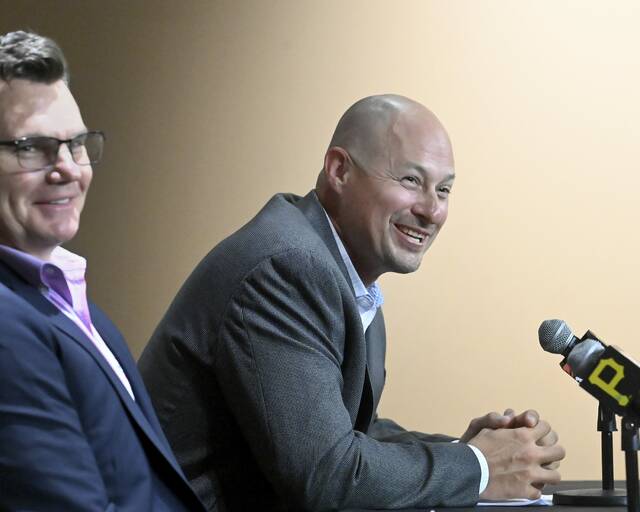For years, the Pittsburgh Pirates organization has had a reputation for being cheap: unable or unwilling to spend to make its on-field product better.
But as the Tampa Bay Rays, another team accused of skimping on player salaries in the past, competes in the World Series against the Los Angeles Dodgers, one of the highest-spending teams in Major League Baseball, it raises the question: How important is money to the game of baseball?
Maybe not as important as most people think.
“The variation in team payrolls explains about 16% of the variation in win percentage in any given year,” said Andrew Zimbalist, a professor at Smith College and an expert in sports economics.
That means, Zimbalist said, one-sixth of a team’s wins each season can be attributed directly to payroll. So, then, what about the other five-sixths?
Zimbalist listed good scouting, sabermetrics (the use of statistical analysis to judge player performance), managerial skill and dumb luck.
“The trick is, in scouting and analytics, to find the right people and make the right moves,” he said. The Pirates “haven’t made the best decisions on player development.”
For many years, the Pirates have been among the lowest-spending teams in baseball.
Twice since 2018, the MLB Players Association has filed grievances against the team, contending the Pirates are not properly spending money they get in revenue sharing on improving the on-field performance of the 25-man roster.
According to the website Baseball Reference, in 2018, every team received $118 million in revenue sharing and another $91 million from national revenues. Still, the Pirates’ payroll was $91 million that year.
Since then, it has dropped precipitously.
The grievances never went anywhere, but that doesn’t invalidate the underlying claim, said Jay K. Reisinger, a Pittsburgh attorney who has represented more than 100 MLB players in salary arbitration over the past 20 years.
Under the 2017-21 Basic Agreement between players and owners, teams are required to give an accounting of their revenue-sharing spending, Reisinger said.
Pirates spokesman Brian Warecki said the team will not receive any revenue sharing for 2020, which was proposed by MLB but rejected by the players association.
“The Pirates have always invested any and all revenue-sharing receipts to improve the on-field product,” he said. “Any claim to the contrary is simply incorrect.
“Those revenue-sharing receipts, which have continued to diminish over the past decade, are a fraction of what we spend on major league payroll, as well as the significant investments in pro and amateur scouting, signing amateur players and developing our major and minor league players.”
Reisinger is not convinced.
“If they aren’t violating the rule, they’re violating the spirit and intent of it,” Reisinger said. “They have not been putting revenue-sharing money into their 25-man roster.”
Although the Pirates have eclipsed $100 million in payroll a few times, they have not spent at that level since 2017. Spending increased after the success of the team from 2012 to 2015. But between 2017 and 2018, the team shed $7 million in payroll. From 2018 to 2019, the payroll dropped $19 million.
“There is a direct correlation between spending and success,” Reisinger said. “There’s no doubt about that. … I don’t think ownership wants to build a winning product.”
Warecki said that is not true.
Before the start of the 2020 season, owner Bob Nutting cleared out the team’s front office, including President Frank Coonelly, General Manager Neil Huntington and team Manager Clint Hurdle.
He put in new leadership, including General Manager Ben Cherington, with promises of a change.
“The 2020 season was important for the future of the organization as we successfully improved the culture in our clubhouse, moved toward a player-centered development mindset and saw the emergence of key building blocks for our future success,” Warecki said. “We believe in, and are committed to investing in, the plan that has been put in place by Ben Cherington and our baseball operations staff to better identify, acquire, develop and deploy talent. We are energized by the new direction of our club and the hard work that lies ahead.”
Reisinger praised the current management team but noted they aren’t the ones who make the spending decisions.
“These are guys I know want to win, but they’re not the ones who write the checks,” he said.
Nutting, in an interview from when Travis Williams was announced as president of the team, said the current narrative around the economics of baseball, and Pittsburgh baseball, needs an overall change, specifically with the idea that payroll equals success.
“It is simply not an accurate narrative that the perception that the team is generating enormous cash or deciding not to fully invest,” Nutting said. “There is no question it will always be about how effectively we can deploy dollars.”
But, he said, teams like Tampa Bay or Oakland have had success utilizing a similar economic model to what the Pirates use.
He added, “it’s not realistic that we’re going to be on an economic even playing field and it’s completely unlike hockey or football in a salary cap sport. There’s always going to be enormous disparity in the game, and we need a team that can embrace, understand and do the best we possibly can given our market size.”
Mike Lewis, a professor of marketing at Emory University who runs the podcast “Fanalytics With Mike Lewis,” said many small-market teams take a cyclical approach.
They invest in their minor league teams, develop those players well and then will have a couple decent seasons in a row.
But what has been frustrating for Pirates fans is to watch those same players go on to shine on a bigger stage elsewhere.
The Pirates have several recent examples of those, including ace pitcher Gerrit Cole, who went to the World Series with the Houston Astros in 2019, and pitcher Tyler Glasnow, who started for the Rays in Game 1 of the World Series on Tuesday.
“It’s quite possible for the Pirates to have a competitive team,” Zimbalist said.
But, he added, “They’re always rebuilding. It’s totally understandable fans would be frustrated.”
In January 2018, the Pirates traded away two star players, Andrew McCutchen and Cole. In return for McCutchen, a fan favorite and the longest-tenured player on the team, the San Francisco Giants gave up relief pitcher Kyle Crick and outfielder Bryan Reynolds as well as international bonus pool space.
In exchange for Cole, the Astros gave up pitchers Joe Musgrove and Michael Feliz, as well as infielder Colin Moran and minor leaguer Jason Martin.
“When you’ve reached a threshold of player talent, either buy or trade for higher-priced veterans,” Zimbalist said. “I don’t think the Pirates have done that successfully.”
Rebuilding should take two to four years for a team to accumulate and develop good players, he said.
“It’s OK to have a lower payroll — you have to then build up from the bottom, through trades and drafts — and then loosen up the purse strings and spend,” Zimbalist said.
For example, in 2015, the Kansas City Royals won the World Series with the 13th-highest payroll in the league of 30 teams. This year, the Tampa Bay Rays made it to the World Series with the third-lowest payroll in the league.
“That’s a key step I don’t think the Pirates have taken,” Zimbalist said.
Ideally, he continued, the Pirates would spend a couple years strengthening their minor league system — drafting well and developing players — and then, when they are on the cusp of a .500 season, look to strengthen through trades and free agency.
“Spend money when you get to the point that it’s justified,” he said. “When you do that, it will pay off for you.”
At the end of this season, Cherington said the team will spend money after it develops its current crop of young players.
“We’ve got to do our job to get to that point where that’s going to make a lot of sense to do that and then figure out what is the best way to complement it,” he said. “It’s not a straight line.”
Cherington said the process is not black and white.
“It’s not that we won’t add players this offseason or at any point along the journey, different moves that make sense at different times.
“I’m confident that we have the resources to build a winning team.”
Nutting said what the team has not done effectively is “maximize the players on the field that we have, maximize the players we’re bringing into the organization, develop the talent and, most importantly, see them perform at PNC Park. I think that’s job one.”
Baseball’s structural imbalance
Money works differently in baseball than in other major American team sports because the MLB has no salary cap.
Reisinger, the Pittsburgh sports attorney, said that’s because neither side bargained for it in contract negotiations.
“There’s a free-market system in baseball that has served both the players and owners very well over the years,” he said.
Lewis said teams like the New York Yankees, Los Angeles Dodgers, Boston Red Sox and Chicago Cubs don’t want a salary cap.
“They want the luxury of outspending the other teams and dominating on the field,” he said.
There always will be structural imbalance in baseball, Lewis continued: “The economics of these leagues are almost always set up that these teams don’t have a chance.”
Reisinger does not believe a salary cap necessarily would bring parity to the MLB, because some teams still would choose not to spend to the top of the cap. He cited as an example a team from the National Hockey League, the Arizona Coyotes, which in the 2018-19 season spent $6 million under the cap.
“The Pirates wouldn’t spend to the cap,” he said.
In a February 2019 interview, Nutting said there is no question a salary cap would help teams like the Pirates.
“Whether it’s realistic in the overall economic system of baseball, whether it’s an achievable goal, what else would need to happen to make that happen, how it aligns with and fits with other teams and the union’s goals, I think that’s complex,” he said. “The most important thing for us is we understand the real rules that are in place and work with them and don’t allow a potential future state to distract us from what it takes to put a championship team on the field in the existing economic system.”
No one should expect the Pirates to spend like the Yankees or Dodgers, Reisinger said. But the team could spend its revenue-sharing money in a way that boosts its payroll and on-field product.
Reisinger, who represents about 20 players in salary arbitration, said Pittsburgh is not a destination team for players.
“That doesn’t mean it can’t change in a heartbeat,” he said.
One way it can quickly change, Reisinger continued, is spending. If a team is willing to spend in free agency, players will be attracted to the club.
The other way it can change, he said, is by winning.
The worst winning percentage
Because of covid-19, the MLB regular season featured only 60 games for each team.
The Pirates went 19-41, with a league-worst winning percentage of .317. It was the fifth-lowest winning percentage the team has had, dating to when they were called the Pittsburgh Alleghenies in the late 1800s, according to Baseball Reference.
Although the stands were empty this year because of the pandemic, the team’s revenue from gate receipts was dropping long before that.
Last year, the team generated $44 million in gate receipts, according to Statista, a number that has continued to drop over the past few seasons. According to the data, gate receipts generated $70 million in revenues in 2016 but dropped to $60 million in 2017. By 2018, that number fell to $45 million.
While an exact number for this year is not yet known, predictions show the Pirates lost about 20% of revenues this season, revenues typically funded through ticket sales, parking and concessions, said Ronald Dick, associate professor of sports marketing at Duquesne University.
“The Pirates really need that ticket revenue,” Dick said.
He noted the 60-game season this year — compared with the 162 games typically played — also is impacting TV revenues.
This year, viewership for Pirates games was down 34%, said Victor Matheson, professor of economics at the College of the Holy Cross in Worcester, Mass.
Matheson attributed part of the drop in viewership to the fewer games that were played but also because “the Pirates put by far the worst product on the field of any team in baseball this year.”
Still, the team raked in about $44 million in local TV revenues this year, estimates by FanGraphs show. That’s an increase from $25 million in 2016, ranking Pittsburgh among teams such as the San Diego Padres, who received $46 million in local television revenues, and the Kansas City Royals, who produced $44 million in TV revenues.
In 2019, the team struck a multiyear extension with AT&T SportsNet, which televises at least 150 live Pirates games, along with pre- and post-game coverage and team-related shows. Terms of the extension were not disclosed at the time.
Because viewership dropped for the Pirates, issues in securing a new contract could arise in the future.
“When it comes the time to renegotiate, they’re in real trouble in terms of what sort of price they can get for their rights,” Matheson said.
Marketing ploys
In a typical season, the Pirates are able to rely on promotions to help draw crowds.
“They’re very good with their promotions,” Dick said. “They do fireworks almost every Saturday night. They conditioned us and branded us into getting a T-shirt every Friday.”
But tactics like promoting a 20-year-old stadium are growing old, Dick said.
“How many more times are they going to tell us they have a really nice building? It’s kind of like a new house,” he said. “They’ve had it for 20 years, ‘Hey come and see our new house.’ And it’s like, ‘OK, I’ve seen it. Give me another reason to come to a game.’ ”
Per-game attendance has declined steadily over the past few years, a Statista graph shows, reaching an average low of 18,412 people last year.
Between 2012 and 2015, attendance increased, data show, growing from 26,148 people to 30,846. But in 2016, attendance dropped by 2,734 people, a year prior to the cut in payroll.
“Marketing in sports, you realize how irrelevant it is if you don’t have quality and winning,” Lewis said.
And, Reisinger said, “there’s a direct correlation between winning and attendance. That’s been borne out here in Pittsburgh.”
“When you realize you’re not drawing fans, and TV ratings are in the tank, often, teams will feel compelled to spend money,” he said. “Because sometimes you need to spend money to make money.”
It’s possible for Major League Baseball to pressure owners into spending more, Reisinger said, “but they’ve often taken the position — so long as their teams are operating within the rules — they’re allowed to spend or not spend as they see fit.”
Neither MLB nor the MLB Players Association responded to requests for comment for this story.
Zimbalist, the economist, does not believe the Pirates owe the fans anything.
“I don’t see it as an obligation,” he said. “This is capitalism. The owners can go about their business the way they want to. Teams are allowed to spend as little as they want.”




